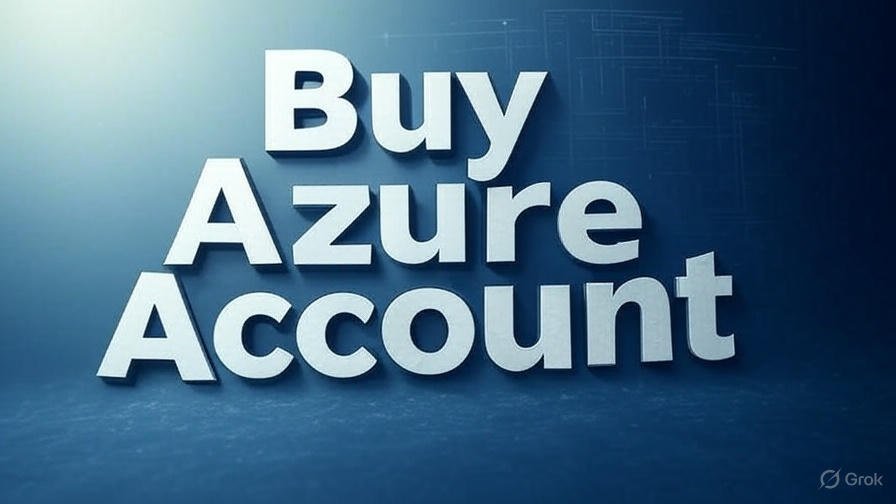In the ever-evolving world of cloud computing, Microsoft has introduced several key updates to its Azure policies in 2025, focusing on enhancing security, compliance, and partner ecosystems. As businesses increasingly look for ways to acquire buy Azure account resources efficiently, understanding these changes is crucial. This news article dives into the latest developments from Microsoft’s official documentation, including refinements to subscription agreements and new tools for partner transfers, to help organizations stay compliant while exploring acquisition options from third-party vendors. 20 For more details on Azure services, visit the official Azure services page.
The Growing Ecosystem of Azure and Market Demands
Microsoft Azure continues to dominate the cloud market, with projections indicating exponential growth through 2030. Services ranging from virtual machines to AI-driven analytics attract enterprises worldwide. However, the surge in demand has led to a rise in queries about alternative methods to acquire Azure accounts, such as through third-party vendors. Microsoft’s response has been to reinforce its terms, emphasizing direct subscriptions and authorized channels to mitigate risks like unauthorized access and compliance breaches. 0
Recent announcements in Partner Center highlight updates like the New Commerce Experience (NCE) Partner to Partner transfer tool, launched in 2025, which allows mid-commitment transitions between partners. This tool addresses evolving customer needs while maintaining strict oversight, ensuring transfers align with Microsoft’s overarching policies. 20 Additionally, amendments to the Azure Marketplace Standard Contract in April 2025 have clarified publisher roles and contract restatements, further tightening third-party interactions. 19
Decoding Microsoft’s Core Terms and Conditions
The foundation of Azure usage lies in the Microsoft Online Subscription Agreement (MOSA) or Microsoft Customer Agreement (MCA), which govern subscriptions purchased directly from Microsoft. 1 These agreements prohibit renting, leasing, lending, reselling, transferring, or hosting Azure products to third parties without explicit permission. 15 Subscriptions are categorized into Commitment, Consumption, or Limited Offerings, each with specific payment and usage terms to suit different business models.
For instance, Commitment Offerings require upfront purchases for a term, while Consumption models bill based on usage. 15 Importantly, unused commitments expire, underscoring the need for careful planning. The agreements also allow assignments to affiliates or third parties for internal use, but the original subscriber remains liable. 15
Compliance with U.S. export regulations and other laws is mandatory, and eligibility for special offers (e.g., academic or nonprofit) must be verified. 15 These terms are supplemented by the Product Terms, which detail service availability and privacy commitments. 26 To understand more about Microsoft’s privacy commitments, check the Microsoft Trust Center.
Policies Governing Account Purchases and Transfers
When businesses consider options to acquire Azure account features, Microsoft directs them to official channels like the Azure portal or Cloud Solution Provider (CSP) programs. 0 Direct sign-ups involve accepting the MCA or MOSA, ensuring a binding contract with Microsoft. 26
Transfers of subscriptions are permitted under controlled conditions. For example, billing ownership can be shifted between accounts via the Azure portal, requiring appropriate roles like owner or contributor. 15 However, resources must be moved manually, and prepayment balances are non-transferable. 15 The 2025 NCE updates introduce streamlined partner-to-partner transfers, facilitating smoother handovers without violating terms. 20
Enterprise Agreements allow account transfers with admin approval, but complex scenarios may require support tickets. Key requirements include sharing the same Microsoft Entra tenant to avoid access disruptions. 15
| Type | Description | Transferability |
|---|---|---|
| Commitment | Upfront quantity purchase for a term | Limited; requires consent |
| Consumption | Pay-as-you-go based on usage | Transferable via portal with conditions |
| Limited (e.g., Trials) | Time-bound, often free | Non-transferable |
Third-party vendors, particularly CSP partners, offer legitimate ways to access Azure services through managed solutions. 15 These partners can provide value-added services like support and customization, and subscribers can designate a “Partner of Record” for assistance without altering pricing. 15
However, unauthorized third-party sales are strictly prohibited. Acquiring Azure accounts from non-approved sources risks violating the no-resell clause, leading to account suspension or legal issues. 15 Managed Service Solutions are an exception, where third parties can host applications but the subscriber retains administrative control. 15
Recent 2025 updates, such as enhanced Partner Location Account (PLA) requirements for CSP compliance, aim to prevent misuse in third-party dealings. 16 Organizations should verify vendor certifications and review third-party terms before engagement. 2
Best Practices for Compliance and Secure Acquisitions
To avoid pitfalls when seeking to acquire Azure account capabilities, follow these expert-recommended steps:
- Direct Enrollment: Sign up via azure.microsoft.com and accept the applicable agreement. 26
- Engage Certified Partners: Use CSP providers for managed services and transfers. 20
- Proper Transfers: Initiate via the Azure portal, ensuring tenant alignment and resource migration. 15
- Security Measures: Enable MFA and monitor for unauthorized access. 15
- Regular Audits: Review usage against policies in the Microsoft Azure Legal Information hub. 0
Case studies from Microsoft Learn demonstrate successful compliant transfers, preserving data integrity and billing accuracy. 0
Consequences of Non-Compliance and Emerging Trends
Non-adherence can result in service termination, data loss, or financial penalties. For example, unauthorized transfers may forfeit credits and trigger audits. 15 With 2025 pricing adjustments and compliance discounts, staying aligned offers cost benefits. 17
Looking ahead, Microsoft is expanding data residency options and preview features, but only through official channels. 25 Experts advise consulting Microsoft’s support for tailored advice on complex scenarios.
Conclusion
as Azure evolves with 2025 updates, prioritizing Microsoft’s terms ensures secure, compliant operations. By avoiding unauthorized third-party acquisitions and leveraging approved methods, businesses can fully capitalize on Azure’s innovations without compromise.

